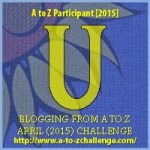
Some of them just didn’t believe me. “An American storyteller telling folktales? Don’t they all just do autobiographical stories?”
Let me tell you part of a story…
In 2012 I had the real pleasure of telling stories at the Beyond the Border Wales International Storytelling Festival. It’s a wonderful every-other-year storytelling festival – You should go!
I’d met the program/artistic director, David Ambrose, 2 years earlier when we’d both been performing at the Rome International Storytelling Festival. There he’d heard me tell “Uncle Olaus Survives the Titanic,” the true story of my great-uncle who was one of the relatively few third-class male passengers to survive the tragedy. I’ve been telling that story for 25 years, but there was something uniquely powerful in that particular telling – to an audience made up of people from many of the countries who had sent their people on that hopeful, for some desperate, voyage.
 Afterward, David asked me if I’d be interested in telling that story at Beyond the Border in 2012, the 100th anniversary of the Titanic’s sinking. He didn’t have to ask me twice!
Afterward, David asked me if I’d be interested in telling that story at Beyond the Border in 2012, the 100th anniversary of the Titanic’s sinking. He didn’t have to ask me twice!
It was a wonderful experience at a magnificent international storytelling festival…
Beyond the Border takes place on the fairy-tale-castle grounds of St. Donats Castle, south of Cardiff. There are performance venues throughout, from indoor halls to outdoor lawns and several large tents.
I’m not altogether certain if it was the first year for it, but there was a specific tent called “The People’s Palace”
– and it was dedicated to stories from “real life” rather than traditional tales such as myths, folk and fairy tales…the stuff of all the other venues throughout the festival. It was where I held 3 of my 4 shows: 2 tellings of the Titanic story, and one of “Looking for Grandpa’s Island,” the personal-experience story of my looking for the Norwegian island where my grandfather and my last name came from. (I also had one performance of telling folktales in The Family Tent.)
I had wonderful and appreciative audiences, with sizable crowds in the tent.
But there were many, many people at the festival who it seems you could not have paid to go into The People’s Palace. At all.
And especially lots of the other performing storytellers.
I heard: “That’s not real storytelling.” “Why would I want to hear about something the storyteller did?” “Those American-style stories…” “That autobiographical storytelling – doesn’t belong here.” And more…
They typically used the phrase “autobiographical stories” rather than “personal stories.” And it became clear to me that “American storytelling” EQUALLED “autobiographical/personal stories” in many, many of their minds.
Many people, and especially the UK/European storytellers, expressed real surprise to learn, upon being introduced to me as an American storyteller, that I tell folk tales. And that, in fact, the majority of my repertoire is folk/traditional tales. Some of them looked like they didn’t believe me, and actually took some real convincing.
It was clear to me that “American storytelling” equated, in their minds, with “personal storytelling.”
It kind of blew my mind.
But then, so has the exploding popularity of story slams in the US…and it seems that UK awareness of US story slamming has translated into “that’s what storytelling IS in the US now, and THAT’S what American storytellers and storytelling is all about.”
Which surprises me, and makes me kind of sad, actually.
And gives more food for thought…on many fronts.
At least this was what I observed, heard, and experienced in 2012. Really, I heard it over and over…
What do YOU think of this perception – that “American storytelling ‘equals’ personal/autobiographical storytelling”-?
Thanks for reading – Pam
[In this blog I often try to use photos I’ve taken. The one at the top I took in Yorkshire. The other I took at Beyond the Border in Wales.]



Leave a Reply to David Thompson Cancel reply